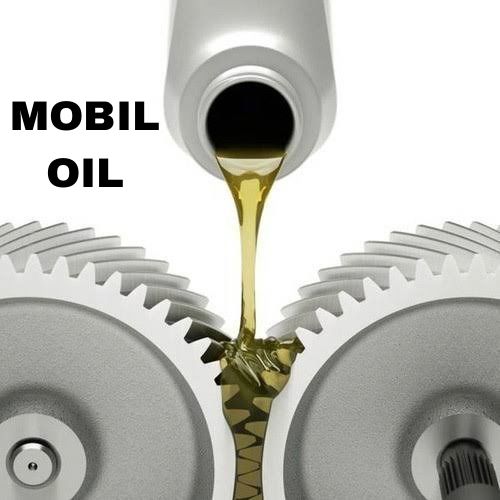In the realm of automobile maintenance, one of the most crucial elements that can dramatically affect the performance of an engine is the type of oil used. High-quality engine oil not only lubricates the various components within the engine but also aids in maintaining optimal temperatures, protecting against wear and tear, and improving fuel efficiency. This guide explores how premium engine oil transforms engine performance and shares best practices for maximizing its benefits.
Understanding Engine Oil
Before delving into how oil influences engine performance, it is essential to understand the significant roles oil plays. Engine oil functions as a lubricant, allowing the moving parts of your engine to glide against each other with minimal friction. Additionally, it helps in cleaning the engine by trapping soot, dust, and other contaminants and carrying them to the oil filter. It also forms a protective barrier against corrosion and oxidation, thereby extending the life of your engine.
Quality oil meets and exceeds various industry standards, ensuring that it can withstand the mechanical and thermal demands of modern engines. The specific formulation and additives found in high-quality oils transform engine performance and contribute to overall vehicle efficiency.
Enhancing Efficiency and Performance
The relationship between engine oil and performance hinges on several factors, including its viscosity, composition, and additives. Viscosity refers to the ability of the oil to flow at different temperatures. Oils with appropriate viscosity ratings provide better lubrication at both high and low temperatures, ensuring that the engine performs optimally regardless of environmental conditions.
Modern synthetic oils are formulated with enhanced properties that offer better lubrication at lower temperatures while remaining stable at higher temperatures. If you’re looking for improved fuel efficiency, consider high-quality synthetic oils known for reducing internal friction. This reduction allows the engine to work more effectively, subsequently decreasing fuel consumption.
Reducing Engine Wear
Wear and tear is a natural consequence of engine operation, but the right oil can significantly mitigate this issue. Lubricants are designed to form a protective layer on engine parts, reducing the direct contact between metallic surfaces. This layer minimizes wear by cushioning impacts and preventing metal-to-metal contact.
Quality lubricants also contain anti-wear additives, providing extra protection under extreme conditions. Regular oil changes using high-quality products ensure that these protective additives remain effective. Engaging in timely oil changes is vital for maintaining the life of your engine, as neglected oil can lead to sludge buildup, significantly impacting performance.
Temperature Regulation
Engines generate heat during operation, and managing this heat is essential for preventing overheating and maintaining efficiency. Engine oil assists in heat dissipation by absorbing heat from engine components and carrying it away. Proper oil circulation helps lower the temperature within the engine, allowing it to operate within its designed specifications.
High-quality engine oils are formulated to have better thermal stability, meaning they can withstand higher temperatures without breaking down or losing their lubricating properties. This thermal efficiency is crucial during challenging driving conditions, such as towing or prolonged high-speed driving.
Cleaning Benefits
Another vital function of engine oil is its ability to clean. Over time, impurities, soot, and other contaminants accumulate within the engine. High-quality oils incorporate detergents and dispersants that effectively suspend these particles, preventing them from settling and causing damage. This cleaning action reduces the likelihood of sludge and varnish buildup, which can impede engine performance.
Using a premium engine lubricant ensures that your engine remains clean and functions optimally. It is advisable to follow the manufacturer’s recommendations regarding oil change intervals and to utilize oils specifically designed for your engine type.
Choosing the Right Engine Oil
Selecting the appropriate engine oil is paramount for achieving optimal engine performance. The vehicle manufacturer usually specifies an oil that meets defined viscosity requirements and standards. Always consult your vehicle’s owner manual for guidelines.
Two primary types of engine oils are commonly used: conventional and synthetic. While conventional oil may be adequate for older vehicles, synthetic oils offer better performance characteristics for modern engines. They withstand higher temperatures, provide superior protection, and generally have a longer lifespan.
Maintenance Practices
To maximize the benefits of high-quality engine oil, consider implementing the following best practices:
- Regular Oil Changes: Timely oil changes are crucial. Depending on your oil type and driving habits, change intervals might range from 3,000 to 10,000 miles. Always follow manufacturer recommendations.
- Use the Right Oil Filter: The oil filter plays a vital role in keeping the oil clean. When changing oil, ensure a high-quality filter is used to prevent contaminants from circulating back into the engine.
- Monitor Oil Levels: Regularly check oil levels using the dipstick. Ensure the oil is at the appropriate level for optimal performance. Top off if necessary, but be cautious of overfilling.
- Choose Quality Products: Invest in high-quality engine oil and filters. Skimping on these items may save money initially but can lead to diminished engine performance and potential costly repairs down the line.
5. Keep a Maintenance Log: Document oil changes and other maintenance checks. Keeping a detailed log helps youtrack maintenance intervals and provides a history that can be useful if any issues arise.
Conclusion
Investing in high-quality lubricants does more than just keep your engine running smoothly; it enhances performance, longevity, and efficiency. A well-chosen and properly maintained oil has the potential to make a substantial difference in your vehicle’s operation, enabling you to enjoy a reliable and enjoyable driving experience.
By following best practices such as regular oil changes, using the right filters, and maintaining an appropriate oil level, vehicle owners can ensure their engines run at peak performance for years.
Experience premium engine care—visit any 11 PLC filling station nationwide today for the best lubricants. Your vehicle deserves nothing less!

